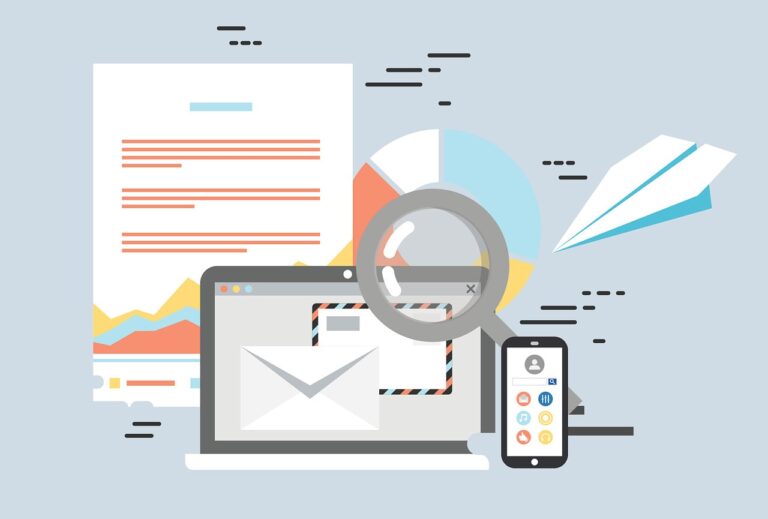How will AI Change Web3 Marketing in 2025?
Web3 marketing isn’t merely evolving – it’s already established. Unlike Web2 marketing, it centers around employing advanced tools and technologies.
Distinguished by decentralization and widespread accessibility, Web3 marketing strives to offer captivating and interactive advertising prospects to marketers. It introduces a multitude of varied strategies that marketers can harness by tapping into data from various sources. Web3 has birthed the creator economy, highlighting the ideology of ownership.
In this article, I explore several ways in which AI can profoundly revolutionize Web3 marketing in 2025.
AI’s Potential to Transform Web3 Marketing in 2025
AI’s Potential to Transform Web3 Marketing in 2025

Relevant and Targeted Ads
The synergy between Web3’s decentralized infrastructure and AI’s advanced capabilities is poised to revolutionize digital advertising. With Web3 facilitating access to decentralized and anonymized data—spanning social media activity, Blockchain transactions, and smart contract interactions—AI can delve deeper into user behavior, preferences, and patterns. This enables the creation of hyper-personalized ads tailored to niche audiences, ensuring relevance and engagement. For instance, AI might analyze a user’s wallet activity on a blockchain to recommend DeFi platforms or NFT collections aligned with their past interactions. By minimizing irrelevant advertisements and maximizing precision, businesses can foster stronger relationships with their target audience while enhancing ad effectiveness.
Using AI to Manage Data
Web3’s decentralized model empowers users with single profiles that span multiple platforms, streamlining data consolidation. This paradigm shift allows AI to access a broader and more comprehensive dataset without centralized intermediaries. Instead of siloed data from disparate platforms, AI can aggregate user information—such as transaction histories, content preferences, and community participation—into unified insights. The ability to efficiently handle and analyze vast datasets allows AI to offer marketers actionable recommendations, ranging from identifying emerging trends to tailoring campaigns in real time. Moreover, by leveraging decentralized identifiers (DIDs), AI can respect user privacy while ensuring data security and compliance, creating a balance between personalization and ethical data usage.
Marketers’ Increased Creativity
As AI continues to take on repetitive and data-intensive tasks, marketers are freed to focus on innovation and creativity. In the evolving Web3 ecosystem, standing out requires more than traditional tactics. Marketers must experiment with unique content formats, immersive storytelling, and gamified campaigns that align with Web3 principles, such as community engagement and user ownership. For example, creating interactive NFT campaigns or utilizing DAOs (Decentralized Autonomous Organizations) for collaborative brand initiatives will push marketers to explore new dimensions of creativity. By leveraging AI to handle analytics, predictive modeling, and campaign optimization, marketers can dedicate their energy to building impactful narratives that resonate deeply with their audience.
AI’s Influence on Prudence
While AI-driven automation offers remarkable efficiency, it also introduces complex challenges in Web3 marketing. The risks associated with hacking, deep fake technology, and misinformation loom large. AI-powered tools can be exploited to create highly convincing phishing schemes or manipulate data, leading to breaches of trust within decentralized communities. To counter these threats, marketers must become proficient in the technical aspects of AI and blockchain technology. This includes understanding smart contract vulnerabilities, adopting secure coding practices, and implementing rigorous validation mechanisms to protect user data. Additionally, ethical considerations must guide AI usage, ensuring that it enhances user experiences without compromising trust or privacy.
Customer-Centric Marketing
Web3 provides access to a wealth of diverse data sources that were previously inaccessible in traditional marketing environments. AI plays a pivotal role in making sense of this decentralized data by analyzing variables such as user demographics, behavioral patterns, transactional history, and community engagement. This enables businesses to segment audiences with unparalleled precision, crafting campaigns that align with customer needs and interests. For example, an AI-powered tool might identify a trend among NFT collectors gravitating toward eco-friendly projects and suggest marketing campaigns that highlight sustainability. By putting the customer at the center of their strategies, businesses can foster deeper connections and enhance brand loyalty.
Efficiency in Marketing Expenditure
One of the standout benefits of AI in Web3 marketing is its ability to optimize resources. By identifying high-impact opportunities and eliminating wasteful expenditures, AI ensures that marketing budgets are allocated effectively. Through real-time analytics and predictive algorithms, AI enables marketers to make data-driven decisions that yield measurable results within tight timelines. For instance, AI might prioritize ad placements on platforms where the target demographic is most active, reducing costs while increasing engagement. This not only enhances ROI but also ensures that campaigns remain agile and adaptable to changing market conditions.
Closing Thoughts
Web3, as a decentralized and transparent evolution of the internet, is reshaping the digital landscape, and AI is its indispensable ally. Together, they promise a future where marketing becomes more personalized, efficient, and ethical. By embracing AI’s capabilities and adhering to the decentralized principles of Web3, marketers can navigate this transformation with confidence, driving innovation while safeguarding user trust. With strategic foresight and responsible implementation, AI can unlock the full potential of Web3 marketing, paving the way for a more dynamic and customer-centric ecosystem in 2025 and beyond.
